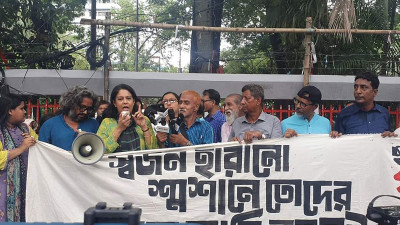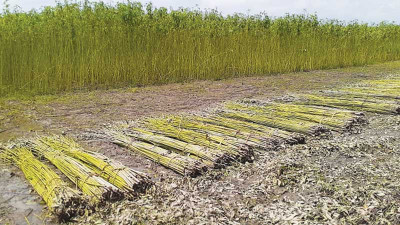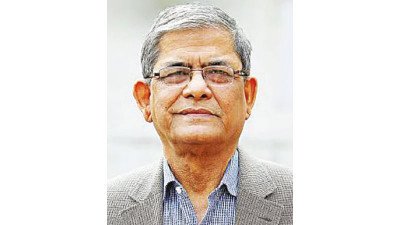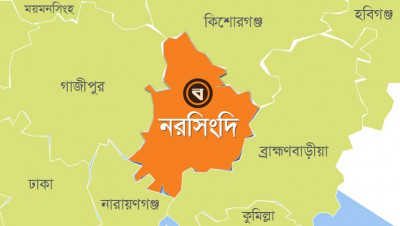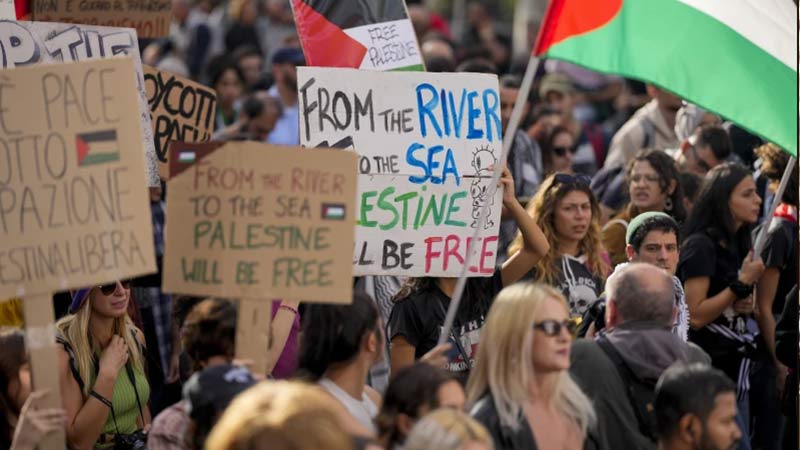 Photo: AP
Photo: AP The Jordan River is a winding, 200-plus-mile run on
the eastern flank of Israel and the occupied West Bank. The sea is the glittering
Mediterranean to its west.
But a phrase about the space in between, “from the river to the
sea,” has become a battle
cry with new power to roil Jews and pro-Palestinian activists in the aftermath
of Hamas’ deadly rampage across
southern Israel Oct. 7 and Israel’s bombardment of the
Gaza Strip.
“From the river to the sea, Palestine
will be free,” pro-Palestinian activists from London
to Rome and Washington chanted in the volatile aftermath of Israel’s bloodiest day.
Adopting or defending it can be costly for public figures, such as U.S. Rep.
Rashida Tlaib, who was censured by the House on Tuesday.
But like so much of the Mideast conflict, what the
phrase means depends on who is telling the story — and which audience is
hearing it.
Many Palestinian activists say it’s a call for peace and
equality after 75 years of Israeli statehood and decades-long, open-ended
Israeli military rule over millions of Palestinians. Jews hear a clear demand
for Israel’s destruction.
This much is clear: Hamas fighters killed at least
1,200 people in Israel, mainly in the initial Hamas attack, and 41 Israeli
soldiers have been killed in Gaza since the ground offensive began, Israeli
officials say. The Foreign Ministry had previously estimated the civilian death
toll at 1,400, and gave no reason Friday for the revision.
Hamas also hauled around 240 people back to Gaza as
hostages in the worst violence against Jews since the Holocaust.
Israel responded with heavy bombardment of Gaza and a
ground offensive, that has killed more than 11,000 Palestinians, according to
the Health Ministry in Hamas-run Gaza. The death toll is certain to rise. The
result is the deadliest round of Israeli-Palestinian fighting in decades.
In the raw afterburn of the Hamas attacks, the chant seems to put everyone on edge.
Photo: AP
SLOGAN ADOPTED BY
HAMAS
“From the river to the sea” echoes through
pro-Palestinian rallies across campuses and cities, adopted by some as a call
for a single state on the land between the Jordan River and the Mediterranean.
By 2012, it was clear that Hamas had claimed the
slogan in its drive to claim land spanning Israel, the Gaza Strip and the West
Bank.
“Palestine is ours from the river to the
sea and from the south to the north,” Khaled Mashaal, the
group’s former leader, said
that year in a speech in Gaza celebrating the 25th anniversary of the founding
of Hamas. “There will be no concession on any inch
of the land.”
The phrase also has roots in the Hamas charter.
The story behind the phrase is much larger, and
reaches across the decades.
In the months before and during the 1948 war, an
estimated 700,000 Palestinians fled or were expelled from what is now Israel.
Many expected to return. Israel captured the West Bank, along with Gaza and
east Jerusalem, in the 1967 war. In 2005, Israel withdrew from Gaza, and in
2007, Hamas claimed the tiny strip from the Palestinian Authority after a
violent coup.
WHAT JEWS SAY THEY
HEAR
Even the shorthand, “from the river to the
sea,” echoes through
pro-Palestinian protests, crackles across social media and is available on a
variety of merchandise, from sweatshirts to candles.
Ask Jewish people in London what’s so chilled them
about the current spike in antisemitism, and many will cite what seems like the
ubiquity of the slogan. It is a sign, they suggest, that there’s much to fear.
“Have no doubt that Hamas is cheering
those ‘from the river to the
sea’ chants, because a
Palestine between the river to the sea leaves not a single inch for Israel,” read an open letter
signed by 30 Jewish news outlets around the world and released on Wednesday.
And in the wake of Hamas’ killing of civilians
on Oct. 7, they’re not buying that the chant is merely
anti-Israel. Backed by groups such as the Anti-Defamation League, they say it’s inherently
anti-Jewish.
“No one can now say that in the eyes of
Hamas, a hatred of Israel does not mean a hatred of all Jews,” said London resident
Sarah Nachshen. “The slogans and placards and chants
calling for the eradication of Israel and, indeed, all Jews have clearly shown
this.”
WHAT PALESTINIAN
ACTIVISTS SAY
Tlaib, D-Mich., who has family in the West Bank and is
Congress’ only
Palestinian-American, posted a video Nov. 3 that featured protesters chanting
the slogan.
No stranger to criticism over her rhetoric on the
U.S.-Israel relationship, Tlaib defended the slogan.
“From the river to the sea is an
aspirational call for freedom, human rights, and peaceful coexistence, not
death, destruction, or hate,” Tlaib tweeted, cautioning that
conflating anti-Israel sentiment with antisemitism “silence(s) diverse voices
speaking up for human rights.”
Tweeted Yousef Munayyer, head of the Palestine/Israel
Program and a senior Fellow at Arab Center Washington: “There isn’t a square inch of the
land between the river and the sea where Palestinians have freedom, justice and
equality, and it has never been more important to emphasize this than right
now.”
A TWO-STATE SOLUTION
Most of the international community supports a
two-state solution, which calls for the partition of the land. To many, though,
decades of Israeli settlement expansion have made the reality of a two-state
solution impossible.
Right-wing Israelis have blurred the lines between
Israel and the West Bank, where half a million people now live in settlements.
Many in the Israeli government support the annexation of the West Bank, and
official government maps often make no mention of the “green line” boundary between the
two.
And the original platform of Prime Minister Benjamin
Netanyahu’s party, Likud, published a version of
the slogan, saying that between the sea and the Jordan River, “there will only be
Israeli sovereignty.”
THE RISK OF THE SLOGAN
Using the phrase for public figures can be costly.
Tlaib’s censure is a
punishment one step short of expulsion from the House.
Last month, Vienna police banned a pro-Palestinian
demonstration, citing the fact that the phrase “from the river to the
sea” was mentioned in
invitations and characterizing it as a call to violence.
And in Britain, the Labour party issued a temporary
punishment to a member of Parliament, Andy McDonald, for using the phrase
during a rally at which he called for a stop to bombardment.
“We won’t rest until we have
justice. Until all people, Israelis & Palestinians, between the river &
the sea can live in peaceful liberty,” he tweeted.
Then he explained: “These words should not
be construed in any other way than they were intended, namely as a heart felt
plea for an end to killings in Israel, Gaza, and the occupied West Bank, and
for all peoples in the region to live in freedom without the threat of
violence.”


